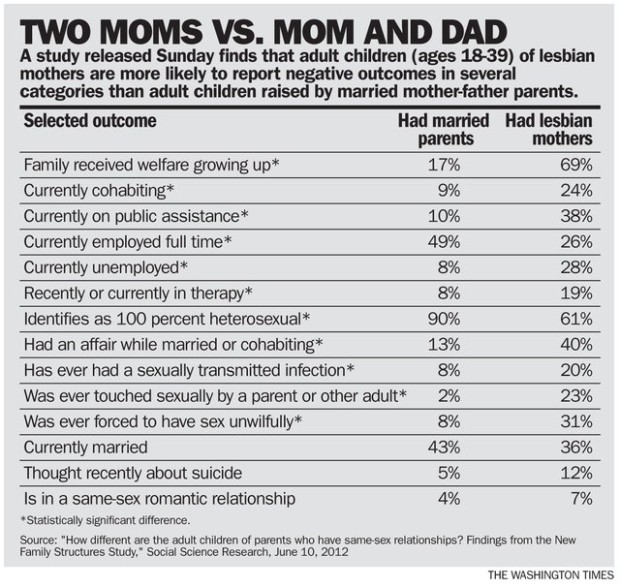On January 22, 2013, the 40th anniversary of Roe v. Wade, I gathered with others in the Urbana-Champaign community to commemorate the human lives lost through abortion. In this opportunity to speak at the Community Ecumenical Pro-Life Prayer Vigil, I wanted to share hope. The prolife movement is alive and well because of young people like the ones I met at the University of Illinois.
“In the beginning, God…” (Genesis 1:1)
Why does Scripture open with these words? Because God is the center of reality: “…[I]n Him we live, and move, and have our being…” (Acts 17:28)
During creation, God said, “Let us make man in our image, in our likeness…” So God created man in His own image… male and female He created them. (Genesis 1:26–27)
God stamped His likeness upon us, and shared His divine being with us.
Because He “breathed into his nostrils the breath of life… the man became a living being.”
This is at the heart of the prolife movement. A person is alive and is human because he is made in the image of God. Humanity has nothing to do with age, ability to learn, or net worth.
The future of the prolife movement is bound up in our ability to communicate this to others.
And to speak to this generation, we need to know where it’s at.
When I was on campus, I invited medical students to attend a screening of the film Maafa 21. I sent this question out to the med school listserv: “What is the leading cause of death among African-Americans?” I listed several options to choose from: heart disease, cancer, stroke, or abortion.
The answer is abortion.
I thought that the students would challenge the fact that I would group abortion with the other causes of death, and say that a fetus isn’t really alive, or human.
The email sparked a lot of debate, but no one questioned the fact that unborn children are humans. They took exception to the fact that some children should be born.
One student wrote, “By ‘Planned Parenthood’s aggressive agenda against minorities’ do you mean showering them with condoms and birth control pills?”
Another student said, “Yes, black women have the highest rate of abortion in this country. But it is also true that hispanics and blacks are also much more likely to be below the poverty line…”
She continued, saying: “I grew up in DC, a city where minorities are the majority. I volunteered at planned parenthood, where primarily black nurses and black doctors cared for primarily black women. This is an opinion–but I don’t think they were trying to kill off their race. I think they were trying to provide sexual health care to a population that desperately needed it.”
It’s logical that this young woman would say this, because it’s what she’s very likely been taught throughout her life. The anti-life side has been much more shrewd about instituting “sex-ed” programs to convey their viewpoint and our educational establishment is dominated by worldviews such as secular humanism. They know how influential peers can be, which is why here in Champaign
Planned Parenthood has a program of “Peer educators”: highschoolers trained to convince other highschoolers of how great Planned Parenthood is.
Is it any wonder that so many students believe what they are taught?
I quickly found how unpopular my viewpoint was. Of the emails that came through, only one other student spoke up in support of the unborn.
But that student gave me so much hope.
Meg
The fact that a medical student from here at the U of I was a passionate spokesperson for the unborn made me rejoice. Meg helped restart the Christian Medical Association chapter on this campus. Today she unashamedly speaks about the sanctity of life and takes a public stand against Obamacare.
Even though there is intense pressure to conform on the issue of abortion, I have hope for my generation because I have met valiant prolife advocates all over this campus.
Students like Meg carry the image of our Heavenly Father wherever they go.
You’ve heard about some of the incredibly passionate prolife young people who are active on a national scale—people like Lila Rose with Live Action and James O’Keefe with the Veritas Project. But I want to take a few minutes and share with you what I’ve seen right here on our campus.
Jane
There are currently 1061 Registered Student Organizations here at the University of Illinois. Very few tackle the issue of abortion, but one that does is Illini Collegians for Life, a group affiliated with Students for Life of Illinois.
I got to know a student named Jane at Quad Day, when many of the thousand organizations try to reach new students. Our Illini Collegians for Life booth was directly next to a pro-abortion group. They were loudly promoting their “safe sex” freebies, and it was super uncomfortable being right next to them!
One especially vocal young woman decided to leave her booth and come over to ours. She pointed to some of the literature on our table and loudly proclaimed she didn’t believe fetuses looked like that. Jane didn’t shout back. She just calmly showed her a brochure on fetal development with actual photos of babies as they grew.
The change in the woman was phenomenal. She’d come over to our table to start a shouting match, but Jane’s gentleness was something she couldn’t fight with.
Chris
College can be an intense time of change, and many students are won over by the Leftist climate. A student named Chris actually went in the opposite direction. Chris came to the U of I believing that abortion was acceptable, but by doing independent reading and thinking, he realized he was on the wrong side.
He became ardently prolife. He testified before the Illinois Student Senate on prolife resolutions and during one 40 Days for Life campaign here in Champaign, he signed up to go to the clinic every day.
John-Paul
I’m sure that many of you have heard about or know John-Paul. He was active on campus while he was studying engineering at the U of I, and when he graduated he founded Students for Life of Illinois. He is intensely active in lobbying for prolife legislation, providing resources for prolife campus groups across the state, and organizing statewide events to make abortion unthinkable. Like John-Paul says, life is good.
He taught me an incredible amount about what it means to be prolife. He taught me that abortion affects people of all ages. The babies aborted in 1973 would be celebrating their 40th birthday this year if they had lived. So I’ve lost teachers because of abortion. The babies aborted in 1983 would be turning 30 this year. So I’ve lost classmates to abortion. The children who would have been born in 1993 would be hitting 20 this year. I’ve lost students to abortion.
But during these 40 years under Roe v. Wade, many prolife young people have also been born.
Jerry
Young people like Jerry. Jerry is extremely prolife and extremely political. He worked with Living Alternatives locally so they could provide free pregnancy tests inside the Student Union.
He also campaigned hard for prolife candidates. You need someone to go door to door? Ask Jerry. You need to know how prolife a candidate is? Ask Jerry. His enthusiasm is so infectious I think it’s something viral. And his willingness to jump into challenging situations is legendary.
There’s definitely times when you shouldn’t go into battle alone.
Another Student
Each year the University sponsors an event called “Sex Out Loud.” I avoided it like the plague, until one year when I was invited to help with a booth. The booth was sponsored by a Newman group highlighting chastity and emphasizing the Theology of the Body. The event was held in the Illini Union, and was surprisingly poorly attended. Most of the people were the ones working for groups offering stuff like anonymous sex. Some poor students were required by their professors to go to every booth and get a signature proving they’d been there. Our booth was the only one offering anything besides “if it feels good, do it.” But that was our drawing point. We were so different we stuck out like a sore thumb!
People came up wondering what in the world we were about. The student I was working with quoted from a movie where Cameron Diaz tells Tom Cruise, “Don’t you know that when you sleep with someone, your body makes a promise whether you do or not!” He was able to ask students thoughtprovoking questions that challenged what society considers “normal.”
Folks from every booth were also given the chance to speak to the entire gathering. This other student did that, giving a concise description of God’s plan for sexuality.
Diana
Another student I met and got to know well was Diana. Diana obtained her Ph.D. here at the university, and is pursing a career in academia. Her mother worried that if she betrayed her prolife sympathies at this early stage, it might hurt her chances.
But what Diana decided was that to hold back when she would speak would change who she was. And she wasn’t willing to be silent when she would speak. She was one of a handful of students that testified before the Illinois Student Senate when they were considering options to diversify their healthcare options. She eloquently pointed out that many gynecological needs are not covered by the student health insurance plan because only a very few students ever need them.
This was only one way that she lived out her prolife beliefs. Her research focus was influenced by her beliefs about human embryonic stem cell research.
Stephanie
Diana is not the only young woman who’s broken out of the world’s mold for women. Because of the media attention given to women such as Sandra Fluke, it’s easy to think that all single women in school are die-hard abortion fans. But they’re not. Even though it can be intimidating to voice an opposing viewpoint, one of my friends, Stephanie, wrote a class assignment on Feminists for Life. This group advocates for a new definition of feminism, a feminism that values women that are born and those that are unborn.
These are just some of the students I have met here on the U of I campus. There’s many others, too, like:
Mike
Mike, who organized busfulls of students from several campuses to attend March for Life, and
Lazaro
Lazaro, who set up a prolife flash mob on the Quad.
The reason I have hope is because I know students from this campus who recognize the deep definition of dignity, which stems from our Creator God.
Their lives bear His image—the likeness of God.


